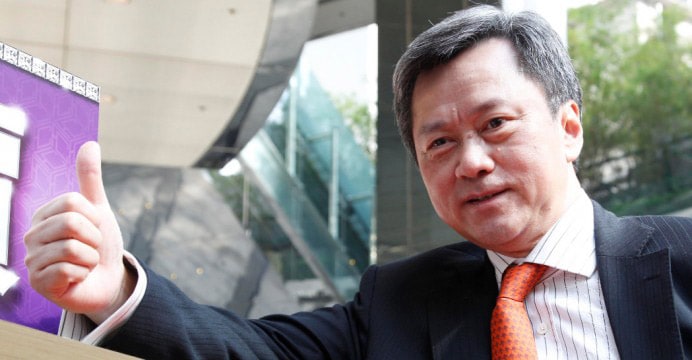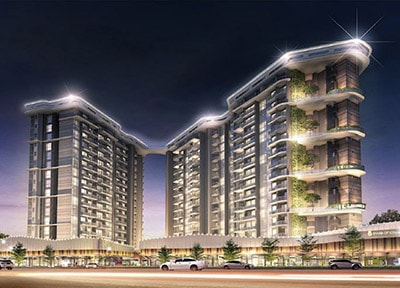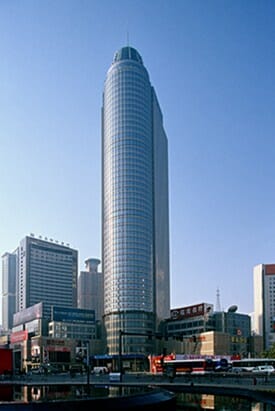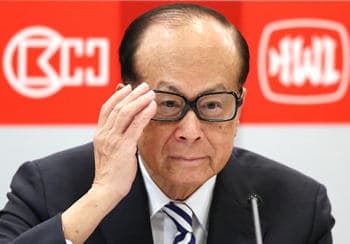
Cheung Kong Property’s Justin Chiu seems to be giving Singapore a big thumbs-up
Li Ka-shing has spent much of the last few years selling off property assets on the mainland and Hong Kong, while simultaneously fending off accusations that he is pessimistic about the outlook for Greater China.
Now Li’s Cheung Kong Property Holdings is not only shopping for development sites in Singapore, but cites the country’s liberal economic regime and rule of law as primary reasons for investing in the southeast Asian city-state.
With many investors in the region already watching the moves of Hong Kong’s richest man as an indicator for where to direct their funds, Li’s turn to Singapore is certain to be seen by many observers as a vote of no confidence in China’s slowing economy and volatile property markets.
CK Property Starting Sales on Eighth Singapore Project

Cheung Kong plans to roll out its eighth Singapore project, Stars of Kovan, next month
While Li Ka-shing’s companies have sold several properties in mainland China and Hong Kong since 2013, Cheung Kong Holdings and Hutchison Whampoa, which merged to form Cheung Kong Property Holdings last year, have been pursuing new opportunities in Singapore.
With many multinationals relocating regional headquarters from Hong Kong to Singapore, and the island nation having boosted its population by around 25 percent in the last decade, CK Properties is about to launch its eighth residential project there next month, and says it is looking for more sites.
“We have looked at the whole list and there are some pieces of land we are interested in and we are talking to some partners,” CK Properties executive director Justin Chiu told the Singapore media last week in reference to a list of development sites being made available by the government. “If we can form a partnership, then we will take up some land from the application list.” The company is understood to be interested in a 105,000 square metre commercial project in Singapore’s Marina Bay area.
This burst of activity in Singapore tracks in an opposite direction from Cheung Kong Property’s decision-making regarding China, where it was said last year to be putting its Century Link commercial project in Shanghai’s Pudong district up for sale for RMB 20 billion ($3.09 billion).
The attempted sale of the unfinished Pudong project came after companies and funds controlled by Li sold mainland property assets worth $1.2 billion in 2014. In 2013, Li’s companies sold the Oriental Finance Tower office project in Shanghai’s Lujiazui area for US$1.155 billion.
Two Out of Three Reasons for Choosing Singapore are Political

Li Ka-shing controlled companies sold the Nanjing IFC for RMB 2.48B in 2014
While Li and his companies have denied accusations that they are pessimistic about the China market, or that they have soured on investing on the mainland, Cheung Kong Property executives last week listed political factors as a major reason for pursuing projects in Singapore.
“We like Singapore. It fits Cheung Kong’s three main criteria for us to go into a host country,” Chiu said in an interview with the Straits Times recently. “One is the legal system – common law is good. Secondly, there is sufficient and available local talent. It’s a free economy as well.”
Chiu’s comments about Singapore, and Cheung Kong’s string of divestments in mainland China and Hong Kong, are aligned with political distinctions between Greater China and Singapore raised recently by UBS Asset Management.
In comments published in the South China Morning Post, the investment firm’s global head of real estate research and strategy William Hughes said, “Now, Hong Kong is a bit different than Singapore,” reportedly noting that increasing mainland China’s increasing role in Hong Kong policy matters had chipped away at the city’s appeal as a free market. Hughes is said to have indicated that this political shift has triggered concerns among foreign investors about the future of Hong Kong’s property market.
Superman’s Property Sell-Off Triggers Criticism on the Mainland

Li Ka-shing has already been accused by mainland media of “spreading pessimism” about China’s real estate market
For Cheung Kong Properties, this uncertainty may lead to still more projects in Singapore, but for Li Ka-shing, it may mean more bad press on the mainland.
Li kicked off a series of China asset disposals in September 2013 by selling a mall in Guangzhou for $390 million. That sale was followed just one month later by the former plastic flower salesman, who is nicknamed “Superman’ for his investment prowess, selling the Oriental Financial Center in Pudong for a record-breaking $1.15 billion.
In the last two years, Li’s companies have made six major deals to dispose of seven properties in China without making any new real estate acquisitions in the country, according to Mingtiandi’s databases of mainland property transactions.
Following reports that Cheung Kong Property was putting its Century Link project on the market last year Xinhua questioned the billionaire’s lack of loyalty to the Beijing regime.
“At this sensitive time, when China’s economy is in crisis, he continues to sell off his assets and to spread pessimistic sentiment,” a commentary published by the government news agency said.
While Li has steadfastly denied that his companies are exiting the China market, this recent endorsement of Singapore’s political advantages and the growing string of projects in the city-state is likely to trigger new questions about Superman’s preferred investment destinations.
Leave a Reply